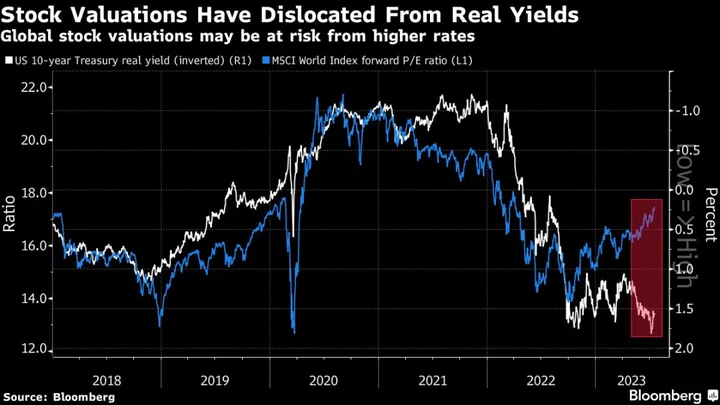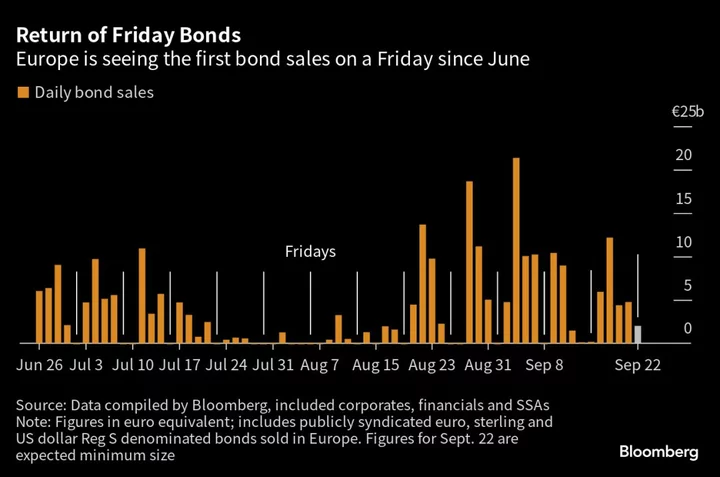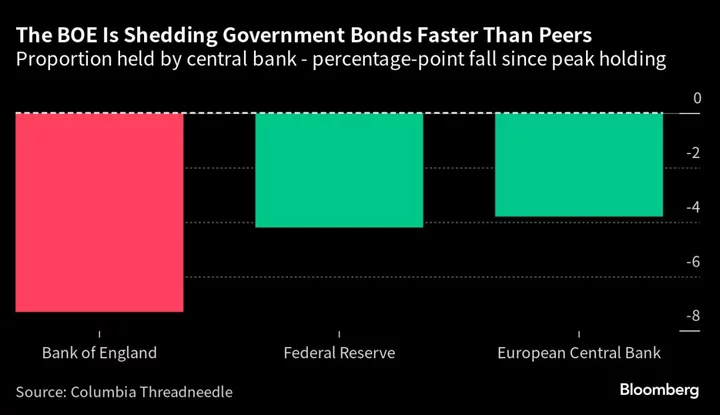It’s shaping up to be a pivotal week for global stocks, as companies with a combined $27 trillion market value gear up to report quarterly earnings. As Netflix Inc. and Tesla Inc. showed last week, the pressure is on — to deliver or face a sharp selloff.
Coming into the season, investors were focused on bets that central banks would stop raising interest rates soon, and the US economy could avoid a contraction. Looking past a steady whittling down of near-term earnings estimates, they lifted the MSCI All-Country World Index’s year-to-date gains past 15%. And at almost 20 times forward earnings, the S&P 500 is trading at a premium to its long-term price valuation.
Now, as the earnings season gets going, investors are looking for companies to deliver.
More than 500 major companies worldwide will reveal how they fared this quarter, and how they expect coming months to shape up. In this busiest week of the season, earnings reports will flow from the likes of Microsoft Corp., Google-parent Alphabet Inc., LVMH, Banco Santander SA, Volkswagen AG, Airbus SE, Sanofi and Samsung Electronics Co Ltd.
For Morgan Stanley’s Michael Wilson, cost-cutting alone won’t be enough to propel stocks further. Pricey valuations mean “stocks will now need more confirmation of the upturn in growth that consensus expects in the second half,” he told clients in a note.
Wilson, known for his bearish views on US equities, says investors are becoming harder to impress. S&P 500 earnings have beaten estimates at an above-average rate so far this season, yet only 42% of the stocks had a positive post-earnings reaction, down from 49% in the previous quarter, Morgan Stanley analysis shows.
“This aligns with our thesis that ‘better-than-feared’ results likely will not be sufficient to materially boost performance post reporting,” Wilson added.
Last week, Netflix and Tesla, the first two Big Tech mega-caps to report, provided a glimpse of how pumped-up markets can react to shortfalls in earnings or guidance.
Both companies had market-beating gains this year before Netflix’s third-quarter sales guidance undershot Wall Street estimates and Tesla warned of further profit hits. The slump in their shares also set in motion a wider selloff that shaved more than $400 billion from the Nasdaq 100’s market capitalization in a single day.
James Athey, investment director at Abrdn, forecasts a significant proportion of earnings to beat estimates, but only because companies have succeeded in lowering expectations. “That alone may not be enough to satisfy the most elevated valuations out there,” he said.
“If guidance shows any sign of concern, that could be enough for investors to flee those stocks.”
The stakes are highest for heavyweight US technology firms, which have fueled the Nasdaq 100’s 41% gain this year. The so-called magnificent seven — Apple Inc., Amazon.com Inc., Nvidia Corp., Facebook-parent Meta Platforms Inc., Microsoft, Alphabet and Tesla — now trade at a record premium to the bottom 493 stocks in the S&P 500, according to Bank of America Corp. strategist Savita Subramanian.
Bloomberg Intelligence strategists Gina Martin Adams and Gillian Wolff also see a further risk to valuations, should the Federal Reserve end up keeping rates higher for longer. The US central bank is expected to deliver a quarter-point rate hike Wednesday, but robust labor market data has recently fanned fears of further tightening later this year. Rate-hike bets placed earlier this year have largely dissipated.
Goldman Sachs Group Inc. strategists, on the other hand, said that the S&P 500’s high valuation is reasonable and could rise further this year as laggards of the index join the surge in winners from artificial intelligence.
--With assistance from Daniel Curtis and Jessica Menton.









